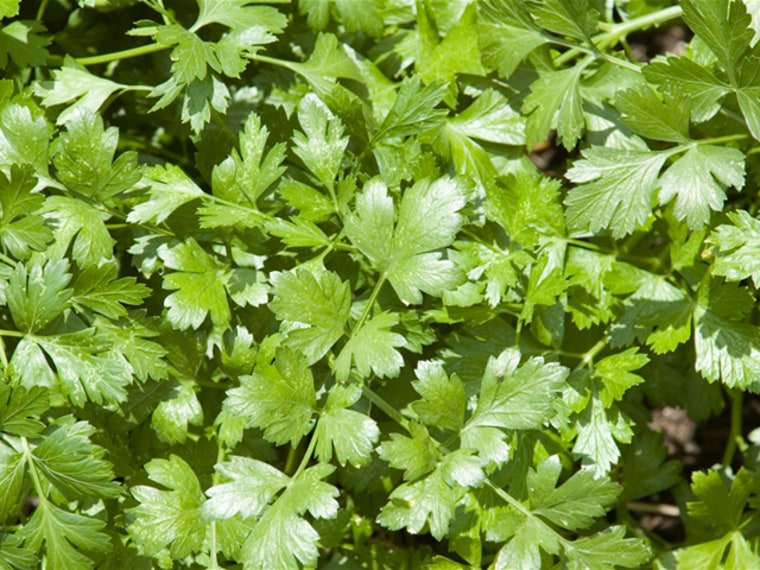To a very vocal online contingent, cilantro is the very worst.
On "I Hate Cilantro" websites and Facebook pages they gripe that the herb tastes like soap, mold, or dirt. Cilantro haters not only despise its flavor, they also detest its smell. Stories in publications as serious as the New York Times, the Wall Street Journal and, yes, even msnbc.com have even covered the sharp divide in taste preferences when it comes to this particular herb. And when a study of identical twins found an aversion to cilantro stems from a genetic glitch, the herb's bashers finally had a good reason why they found the leaves of the Coriander plant so offensive.
But who are these people in the anti-cilantro community? No one had a clue -- until now.
There has been no attempt to quantify which people hate the herb until two nutrition experts from the University of Toronto took a stab at it. They recently published their findings in the journal Flavour. In the study, they surveyed nearly 1,400 young adults ages 20 to 29 in Canada.
Volunteers completed a 63-item preference checklist in which they rated each food on a 9-point scale from 1 (dislike extremely) to 9 (like extremely). They could also select "never tried" or "would not try."
Researchers found an aversion to cilantro ranged from a low of 3 percent to a high of 21 percent among six different ethnic groups.
Young Canadians with East Asian roots, which included those of Chinese, Japanese, Korean, Thai and Vietnamese descent, had the highest prevalence of people who disliked the herb at 21 percent. Caucasians were second at 17 percent, and people of African descent were third at 14 percent.
Among the herb's fans, the group with the fewest number of people who disliked cilantro were those of Middle Eastern background at 3 percent, followed by those of Hispanic and South Asian ancestry at 4 percent and 7 percent respectively.
Exposure to the herb at an earlier age and with greater frequency in Mexican, Asian, and Indian cooking likely helps shape a positive flavor preference. Another possibility is that genetic differences among the cultural groups might influence someone's taste perception of the herb.
Although researchers have yet to evaluate all 63 items on the food-preference checklist, study author Ahmed El-Sohemy, PhD, is sure of one thing: "Cilantro is perhaps the most polarizing with large numbers either loving it or hating it." The paper calls this the "unusual divisive nature of cilantro."
"People who dislike cilantro extremely describe it very, very differently from those who love it," explains El-Sohemy, an associate professor of nutrition at the University of Toronto. The reason? "These individuals live in very different sensory worlds and are not perceiving the same thing," he says.
As for El-Sohemy's opinion of cilantro, count him among the lovers. "I remember loving the taste as a child," he says. "I distinctly remember my mother's Egyptian cooking, which used cilantro frequently."
The study is a first step in determining how widespread a dislike for cilantro is, at least in a sample of young Canadians. It's unclear whether older Canadians feel similarly or how much the herb is despised by people in other countries.
Eventually, the Toronto scientists hope to pinpoint the genetic basis for why cilantro is an herb some people love to hate.
Related:
